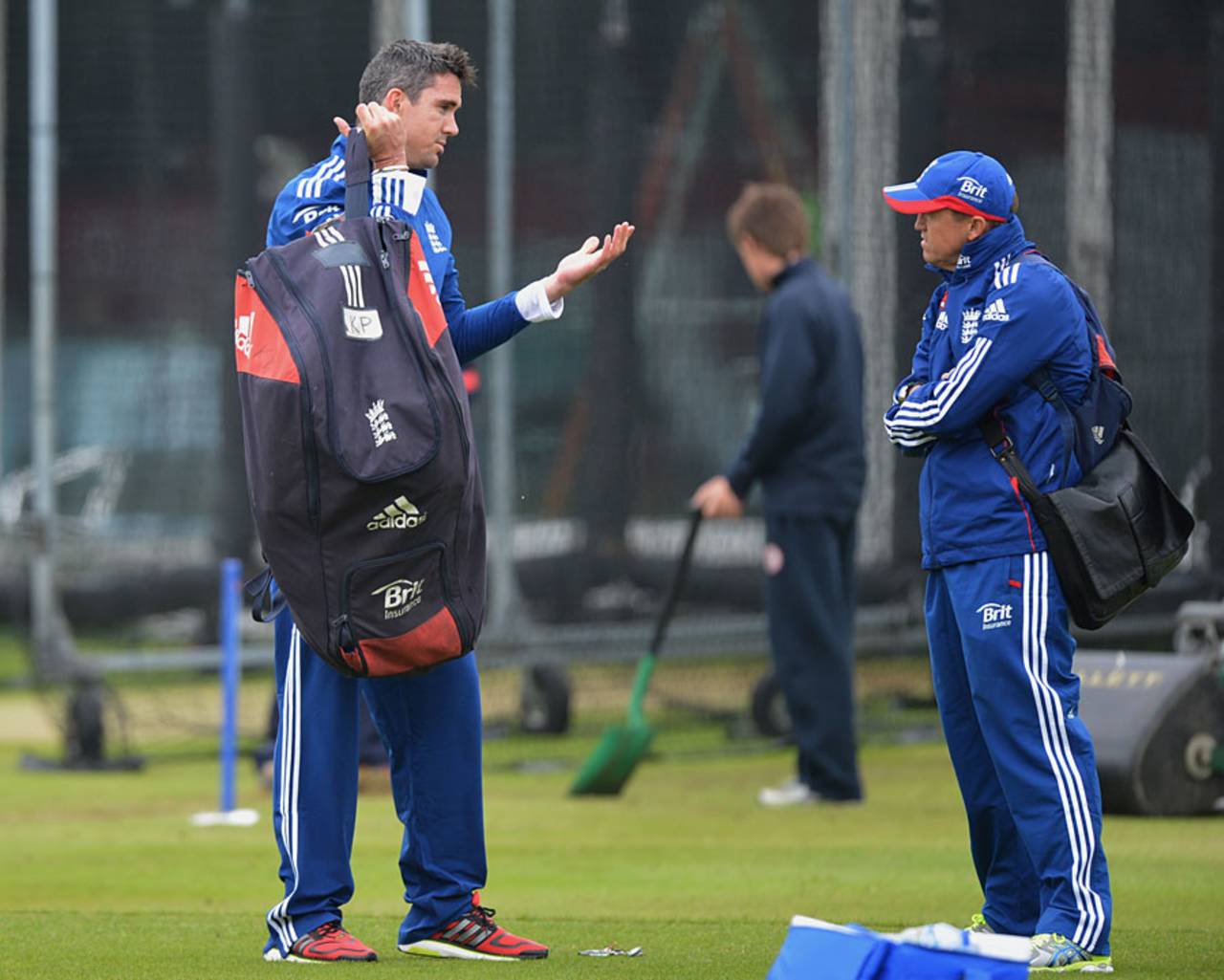As is probably apparent if you've read any of these columns before, I'm not a cricket writer. I'm a football writer and, while much of what I like about cricket is what makes it different from football, I have a tendency to interpret cricket through a footballing lens (something that is becoming increasingly easy to do as cricket seems determined to ape football, with its transfers, managerial dismissals, ill-advised micturition, bitter one-eyed fans and time-wasting: once players start diving, feigning injury and wearing inappropriate fancy dress, then we know we're doomed.) I'm never terribly clear how relevant or useful that is, but here, offered as a thought-experiment more than an actual argument, is a footballing take on the
Andy Flower-Kevin Pietersen spat.
The archetype, of course, is very familiar: a coach whose method is (at least theoretically) based on meticulous preparation, discipline and hard work, who is occasionally criticised for being too methodical and cautious, struggling to deal with an awkward genius whose attacking style endears him to most - but not all - fans, but is unpredictable, whose brilliance can win games but comes at a cost.
Football history is littered with similar examples, from Arrigo Sacchi with Roberto Baggio to every England manager with Glenn Hoddle or Matt Le Tissier to, arguably, Jose Mourinho with Juan Mata (although awkwardness here covers a very broad spectrum).
I confess that in football, my tendency is - generally but not universally - to back the coach. Football at the highest level, for all the romantic and naïve attempts to deny the fact, is a game of structure and if a player is not performing his defensive responsibilities, even if he is scoring goals or creating chances, the net effect tends to be detrimental. The most fascinating examples, perhaps, come with players who aren't obviously lazy or egotistical, and yet still have a negative effect. After Thierry Henry left Arsenal, for instance, Cesc Fabregas spoke of the sense of liberation he felt because he was picking passes on merit rather than simply trying to get the ball to the Frenchman; similarly a case can be made that in his final season at Liverpool, Michael Owen was a negative because they had to play to suit his strengths.
There's even an argument that the modern Liverpool play better without Steven Gerrard, that the icon somehow outshines everything else and, once he has gone, other players take responsibility rather than relying on the designated genius to do something spectacular. Of course fans often back the player - after all, even for those who prioritise results over artistry, which isn't all, it's easier to recall the moments of brilliance and to relate to them than to admire the fastidious schema of a coach. But that doesn't mean a coach should put up with a player who he feels, either through lack of work rate, refusal/inability to follow instruction or general demeanour, undermines him or his tactical plans.
In football, in those circumstances, what you would do is look at how many games a team won with the player in question and how many without. And because most clubs play 50 or so games a season, there's usually a reasonable amount of statistical evidence to go on.
Pietersen, annoyingly - and frankly this is typical of his selfishness - offers very little evidence. Of the 111 Tests England have played since he made his debut in 2005, he has missed just seven. For what it's worth, England's record with him is
W42 D31 L31 and without
W3 D2 L2. That suggests England are better with Pietersen than without, but the sample size is so small as to be almost meaningless.
That doesn't alter the question, though, which is whether the benefits of Pietersen's talents outweigh the negatives he - seemingly - causes (although it's always worth asking when one player appears remote from the rest of the team whether it's the fault of the individual or a clique within the team). If this were football, the answer would almost certainly be no: there is no place in the modern game for mavericks who don't subjugate themselves to the good of the team, as outlined by - in this case - a coach who has a great record of success (up until the past three months).
But that's where we came in. Cricket isn't football and in many ways is an individual sport in a team game's clothing. In football an individual not doing his job on the pitch has an immediate knock-on effect on everybody else: it leaves gaps, forces others to cover, can ruin the dynamic and shape of a team. In cricket, though, if somebody is scoring runs and fielding competently, unless he's batting with deleterious slowness, the effect on the team is far less obvious than in football.
What impact there is can only be on morale and, as a corollary, focus.
And that, really, is something that is almost impossible for an outsider to know. A football answer to the Pietersen problem would be to jettison him; in cricket the answer is far less clear.
Jonathan Wilson writes for the Guardian, the National, Sports Illustrated, World Soccer and Fox. He tweets here
